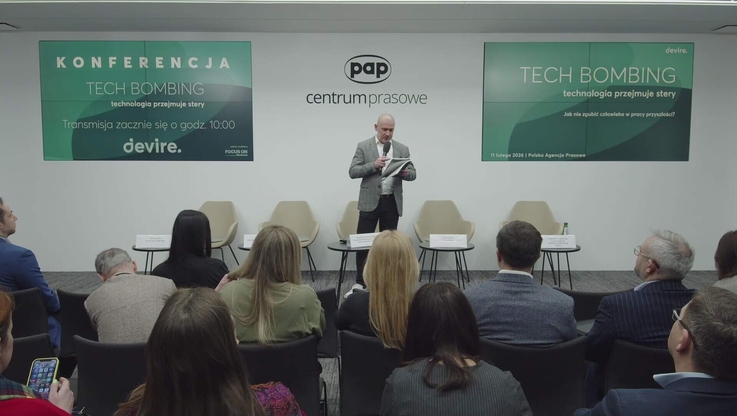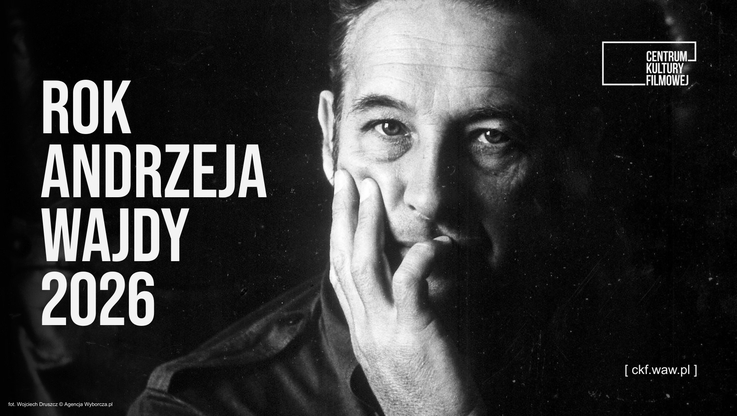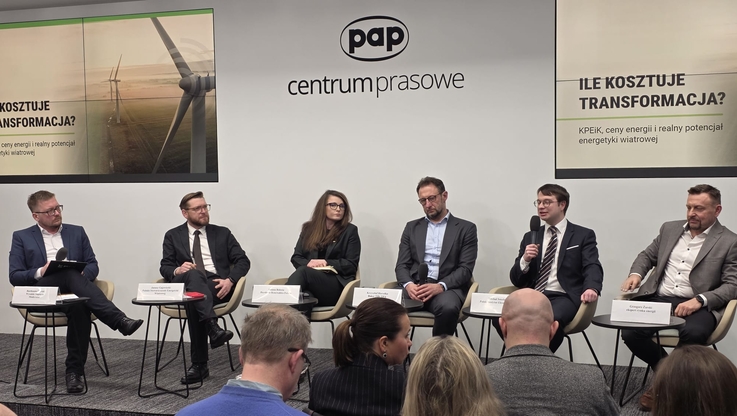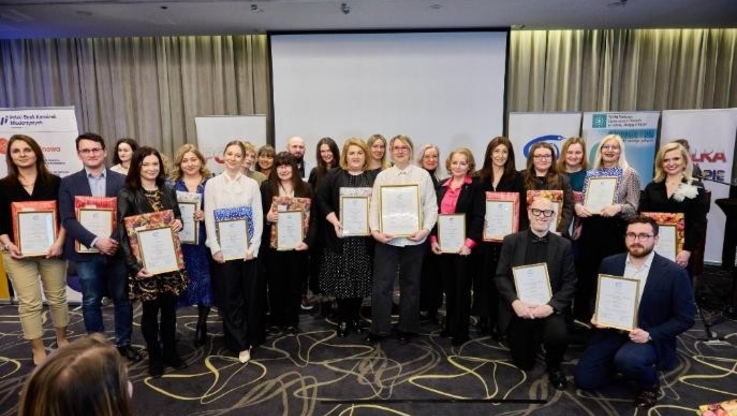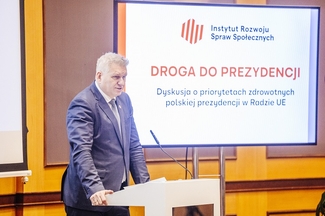Pobierz materiał i Publikuj za darmo
ESPON www.espon.eu is a European research programme connecting academic centres and state and local government institutions that are involved in planning the development of municipalities and regions in every corner of the continent.
“Local government officials and politicians in Poland and throughout Europe are currently intensively searching for best practices and ideas to develop municipalities and regions,” said Szydarowski, who last September won the competition for head of ESPON and joined the ranks of Poles holding key positions in the European Union.
This network of scientific, state and local government institutions researches and promotes sustainable regional development. ESPON’s analyses and recommendations are considered when billions of euros in the Community budget are distributed.
“We observe a hunger for knowledge in all countries. Decision-makers are interested in knowing how their territories compare with others and whether the chosen development path of their municipality or region is optimal. Furthermore, they are also eager to find examples to follow or allies in a common cause”, emphasised Wiktor Szydarowski in an interview with PAP MediaRoom.
ESPON has played a significant role in the Europe-wide effort to combat the COVID-19 outbreak and its socio-economic consequences. Experts not only communicated the territorial distribution of the virus spread, but also provided decision makers with concrete knowledge to choose the optimal strategy.
“How fast and to what extent should the economy be opened up? Whether and at what pace should restrictions be loosened? What are the social costs of the pandemic? Answers to these questions are far easier to obtain if you have knowledge of the experiences of other countries and regions. This knowledge is gathered, compiled and transmitted by ESPON,” commented Szydarowski.
As he explained, ESPON’s primary task is to support successive EU presidencies in achieving the goals they have set. Therefore, the research team provided data for both Germany, which was raising the issue of structural transformation in former coal mining regions in the second half of 2020, and Portugal, which was focusing on the future of rural areas.
Significantly, each of the new EU priorities is followed by huge financial resources for their implementation. And this is precisely where ESPON, headed by Szydarowski, enters the picture - as an advisory body, suggesting to politicians and officials the most appropriate channels for their management.
The ESPON programme covers an extremely broad spectrum of interests and activities. Recently, its experts have dealt with a range of problems affecting every European citizen – fair energy transition, ageing societies, rural development, and post-pandemic tourism. Each time, research conclusions were followed by concrete solutions, which then took the form of political decisions.
ESPON Director Wiktor Szydarowski worked for many years at the Geography Department of the University of Gdansk. “I then spent almost two decades in Sweden, advising the local government administration there and leading numerous projects related to the development of the Baltic Europe area. I also worked closely with the Pomorskie Marshal’s Office on the effective acquisition of EU funds,” said Szydarowski.
The knowledge acquired is crucial in the role of ESPON Director. ESPON is a programme designed to promote and support European territorial and regional development by providing research results, knowledge and information to public authorities at all levels. ESPON operates with a fixed time horizon – it is renewed every seven years if so desired by the European Commission, the 27 EU Member States and the four associated countries: Norway, Iceland, Switzerland and Liechtenstein.
During the current ESPON 2020 programme alone, 22 pan-European thematic projects and 29 research studies on specific territorial areas were carried out. More than a hundred workshops, seminars and conferences were also organised. The output of the three editions of the ESPON programme, over a period of almost 20 years, consists of more than 1200 maps illustrating numerous social and economic processes in Europe. Importantly, all materials – documentation, visualisations, tools and recommendations – are provided free of charge and available to any internet user at www.espon.eu.
Poland, as one of the EU Member States, is also the subject of ESPON research. Among the projects planned for the coming years, several will concern our country. Szydarowski emphasised that several Polish municipalities, associations of municipalities or entire regions are interested in spin-off activities, which means that within the framework of a large project, for instance energy transformation, detailed research is performed at a local level.
“The increasing interest in ESPON’s activities reflects the fact that a number of decision-makers in Poland – officials, local government authorities, and representatives of the third sector –follow our activities and believe that the results will help them make the right decisions regarding the development of their respective territories. We also cooperate with Polish scientific circles, thanks to which over a dozen academic and research centres already participate in various projects of the programme,” emphasised Wiktor Szydarowski.
The results of the work implemented by the ESPON programme are available on www.espon.eu.
Source: PAP MediaRoom
Pobierz materiał i Publikuj za darmo
bezpośredni link do materiału
| Data publikacji | 16.07.2021, 08:00 |
| Źródło informacji | PAP MediaRoom |
| Zastrzeżenie | Za materiał opublikowany w serwisie PAP MediaRoom odpowiedzialność ponosi – z zastrzeżeniem postanowień art. 42 ust. 2 ustawy prawo prasowe – jego nadawca, wskazany każdorazowo jako „źródło informacji”. Informacje podpisane źródłem „PAP MediaRoom” są opracowywane przez dziennikarzy PAP we współpracy z firmami lub instytucjami – w ramach umów na obsługę medialną. Wszystkie materiały opublikowane w serwisie PAP MediaRoom mogą być bezpłatnie wykorzystywane przez media. |

